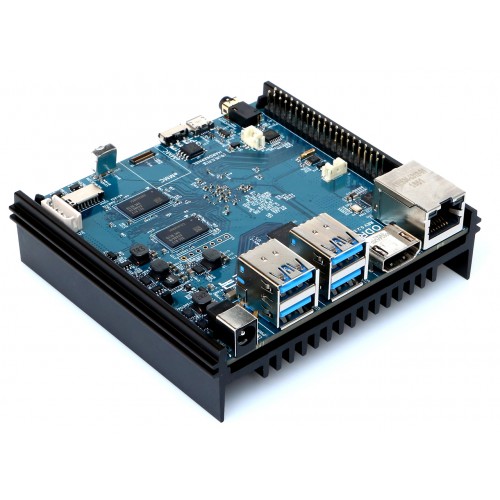ODROID-N2 - A new generation single board computer that is more powerful, more stable, and faster performing than the previous N1 Model.
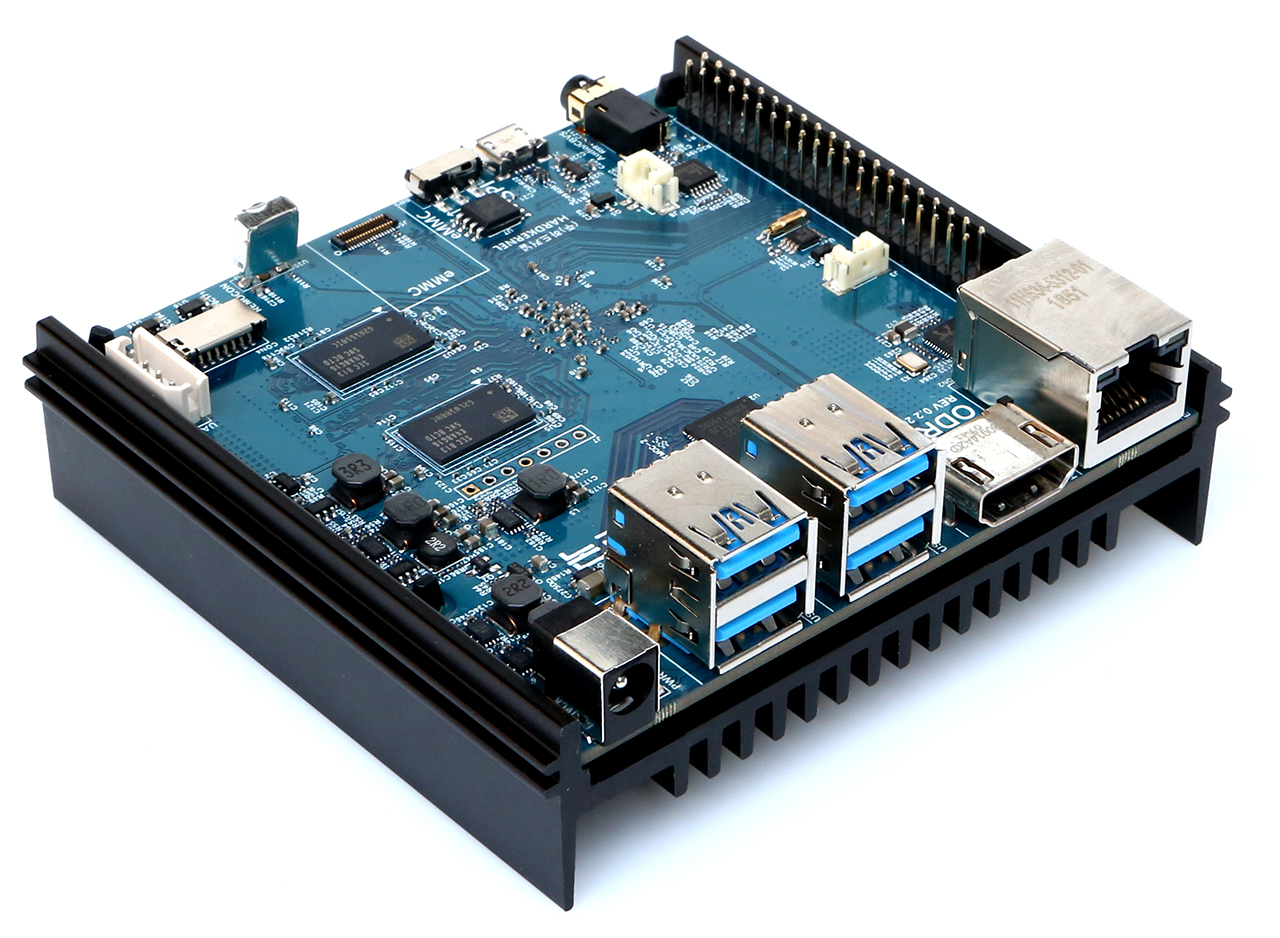
**Note- Anti-static protection case front will be pre-installed. Attempts to remove or open will invalidate warranty**
The main CPU of the N2 is based on big.Little architecture which integrates a quad-core ARM Cortex-A73 CPU cluster and a dual core Cortex-A53 cluster with a new generation Mali-G52 GPU.
With 12nm silicon technology, the A73 cores run at 1.8Ghz without thermal throttling using the stock metal-housing heatsink allowing a robust and quiet computer.
The CPU multi-core performance is around 20% faster and the large metal housing heatsink is designed to optimize the CPU and RAM heat dissipation and minimize throttling. The CPU is placed on the bottom side of the PCB to establish great thermal characteristics.
The onboard DDR4 RAM is 35% faster than theRAM of the older N1 model, running at 1320Mhz while N1’s DDR3 was running at 800Mhz.
Board Layout
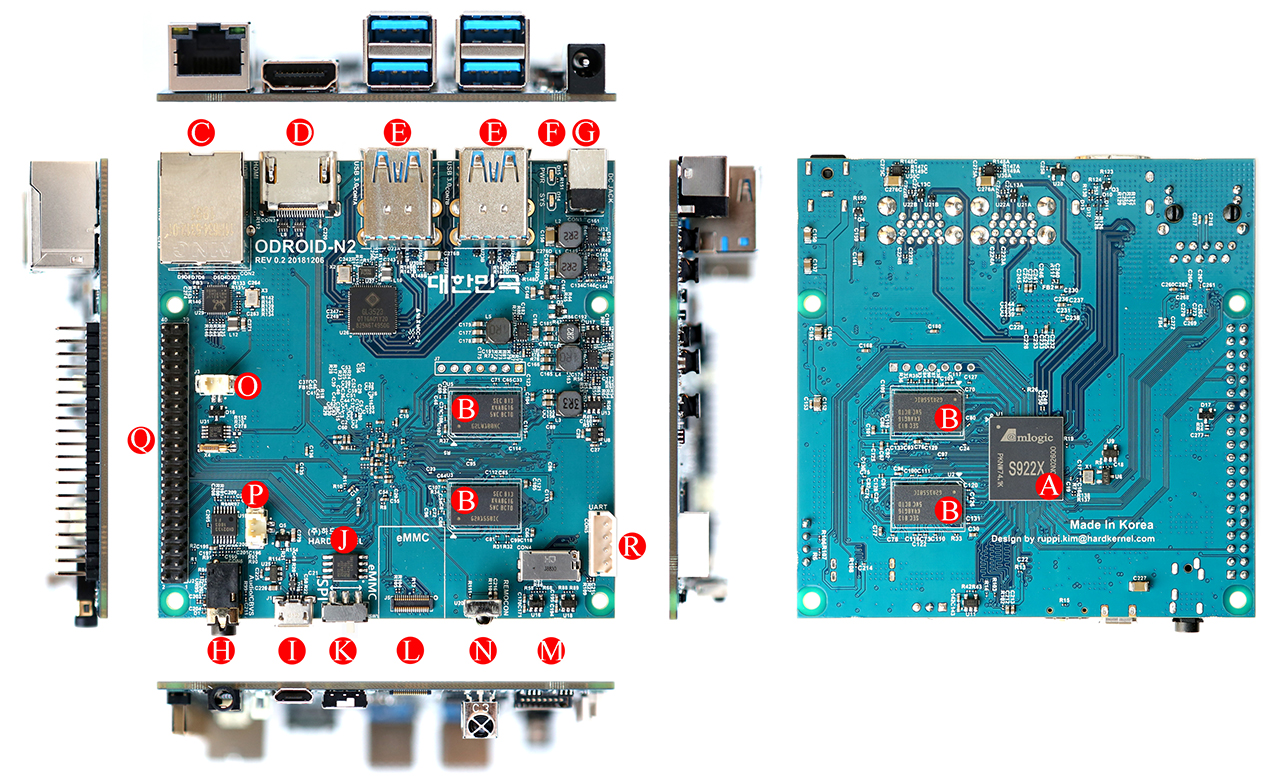

Specification
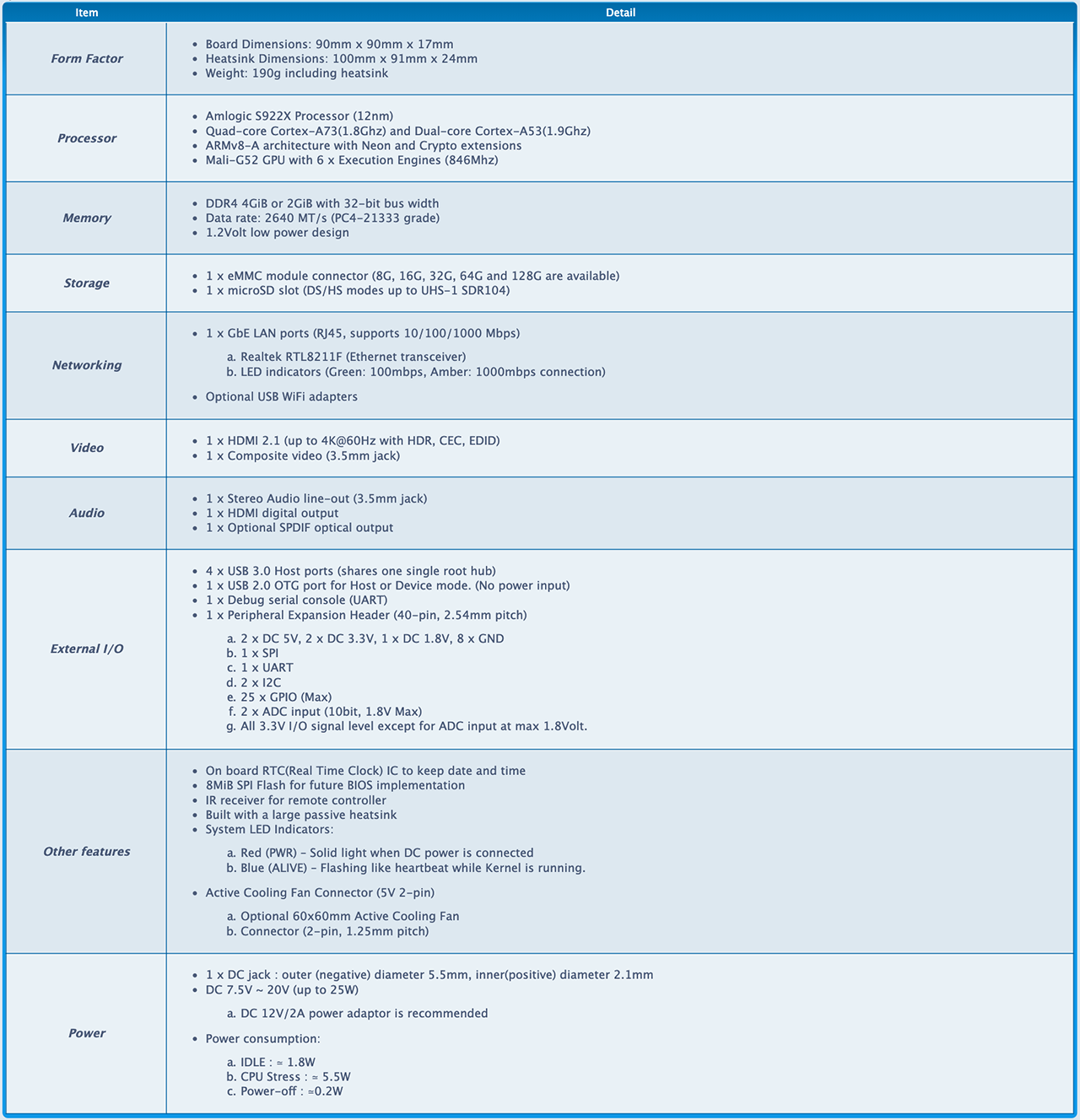
SPI Flash Memory Boot
ODROID-N2 can boot from on-board SPI memory instead of uSD memory or eMMC cards.
The on-board SPI memory is 8MB in size and can include the bootstrap binaries, U-boot, bare minimum Linux kernel, and a ramdisk that includes “Petitboot”. The “Petitboot” software provides a user friendly interface and allows users to select a boot media.
Unfortunately, since the SPI bus on S922X shares the hardware interface with eMMC, the SPI flash memory on ODROID-N2 is only accessible at boot until the eMMC hardware block is activated. So you have to remove eMMC module and boot from a SD card to update firmware in the SPI flash easily.
GPIO Layout
The N2 GPIO interface is similar to C2 and fully supports a 3.3 Volt interface (where N1 could only support 2.8 Volt IO). This is beneficial for using various peripherals without complicated level shifters. Another big improvement is a faster SPI bus interface with a maximum frequency over 150Mhz, which should enable us to design / implement a DMA driven SPI driver for a faster LCD display.
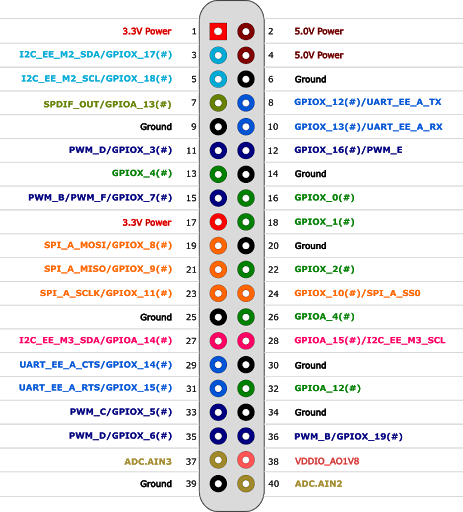
Software / OS Support
Linux
An Ubuntu 18.04 LTS (full 64bit) image is available with Kernel version 4.9.152 LTS which will be officially supported until Jan, 2023.
A hardware accelerated video decoder (VPU) driver is also ready, and we have c2player and kplayer examples which can play 4K/UHD H.265 60fps videos smoothly on the framebuffer of the ODROID-N2 HDMI output (the Mali G52 GPU Linux driver works only on the framebuffer). We tested the latest PPSSPP (Playstation) emulation and it can handle x3 scaling on a 4K display nicely with well implemented VSYNC. There will be a Linux Wayland driver developed during Q2 2019 in conjunction with Arm and Amlogic, however Arm has no plan to support X11 for Bifrost GPUs. We hope that the Panfrost open source driver will be ported to ODROID-N2 soon.
Android
Android 9 Pie is ready, and we will release a full source code BSP and pre-built image in Q1-2 2019. At this moment (Q1 2019) the system supports only a 32bit system while the Kernel runs in 64bit mode. By Q3 we will support a 64bit Android system with Vulkan capable GPU driver.

